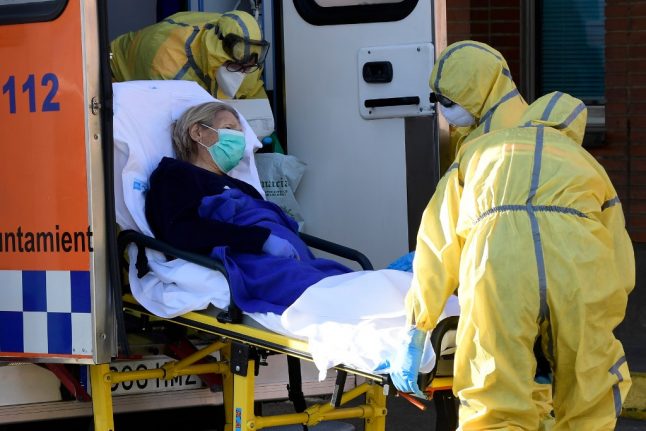Intensive care units in seven Spanish autonomous communities are operating “at full capacity” and three other regions are also on the verge of the complete saturation of all their hospital ICUs.
Fernando Simón, Spain’s health ministry's emergencies coordinator, made the announcement on Sunday as Spaniards woke up to the news of yet another record number of people dying from the coronavirus in the previous 24 hours – 838.
READ LATEST:
- Spain toughens coronavirus lockdown as all non-essential workers told to stay home
- Spain's coronavirus outbreak 'close to peaking'
- Highest one-day coronavirus death toll as 838 fatalities recorded in Spain
Despite Simón's refusal to reveal which Spanish regions have the greatest shortage of hospital beds, ministry data reveals which “comunidades autónomas” are the most stretched.
Madrid, which currently has 1,429 coronavirus patients in ICU, is the region with hospitals under most pressure, followed by Catalonia with 1,391.
Castilla-La Mancha with 299 and Castilla y León with 278 – two of Spain’s regions with the country's most elderly population – are also struggling to cope with this unprecedented rise in ICU patients.
Spain’s Basque Country region with 271, La Rioja with 43 and Navarra with 75 complete the list.
“We need to prevent new admissions in the ICU in a few days,” Simón stated, whilst explaining that the average time period Covid-19 patients spend in the intensive care unit is longer than usual.
“We’re trying to ensure that these limits are not exceeded so that ICUs aren’t brought to a standstill.”
Since the beginning of Covid-19’s rapid surge in Spain, health workers have feared that the lack of hospital beds would only contribute to an already dire fatality rate.
The number of confirmed cases in Spain has now reached 78,797 — after an increase of 9.1 percent in one day — as the country battles the world's second most deadly outbreak. The number is fast approaching the figure of 81,400 in China, where the virus originated.
Spain is now one of the most heavily hit countries due to the virus, with more deaths than any other nation besides Italy. The number of dead in Spain is now more than 6,500.
Except for a brief lull recorded on Thursday, Spain's death toll has been rising daily.
However, officials have pointed to a slower growth rate for both deaths and confirmed cases and expressed hope that the peak of the outbreak was approaching.
Spain also reported Sunday that 14,709 people had been cured of COVID-19, a rise of 19.7 percent in 24 hours.



 Please whitelist us to continue reading.
Please whitelist us to continue reading.
Member comments